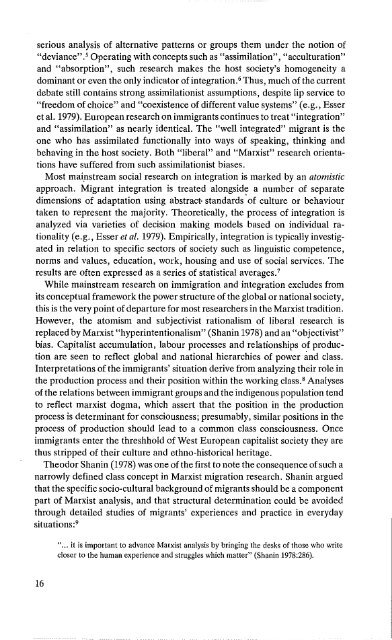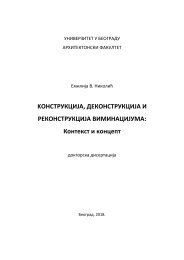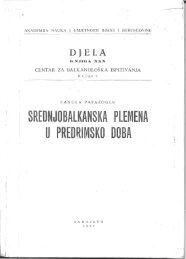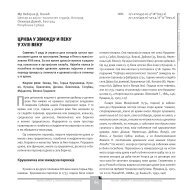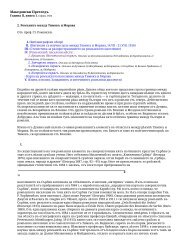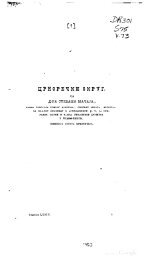Will they still be dancing? (1982)
Etnographic study of Romanians from East Serbia in Sweden in 1980s
Etnographic study of Romanians from East Serbia in Sweden in 1980s
Create successful ePaper yourself
Turn your PDF publications into a flip-book with our unique Google optimized e-Paper software.
serious analysis of alternative patterns or groups them under the notion of<br />
"deviance",5 Operating with concepts such as Hassimilation", "acculturation"<br />
and "absorption", such research makes the host society's homogeneity a<br />
dominant or even the only indicator of integration. 6 Thus, much of the current<br />
debate <strong>still</strong> contains strong assimilationist assumptions, despite lip service to<br />
"freedom ofchoice" and "coexistence of different value systems" (e.g., Esser<br />
et al. 1979). European research on immigrants continues to treat "integration"<br />
and "assimilation" as nearly identical. The "well integrated" migrant is the<br />
one who has assimilated functionally into ways of speaking, thinking and<br />
<strong>be</strong>having in the host society. Both "li<strong>be</strong>ral" and "Marxist" research orientations<br />
have suffered from such assimilationist biases.<br />
Most mainstream social research on integration is marked by an atomistic<br />
approach. Migrant integration is treated alongsid~ a num<strong>be</strong>r of separate<br />
dimensions of adaptation using abstract- standards of culture or <strong>be</strong>haviour<br />
taken to represent the majority. Theoretically, the process of integration is<br />
analyzed via varieties of decision making models based on individual rationality<br />
(e.g., Esser et al. 1979). Empirically, integration is typically investigated<br />
in relation to specific sectors of society such as linguistic competence,<br />
norms and values, education, work, housing and use of social services. The<br />
results are often expressed as a series of statistical averages. 7<br />
While mainstream research on immigration and integration excludes from<br />
its conceptual framework the power structure ofthe global or national society,<br />
this is the very point of departure for most researchers in the Marxist tradition.<br />
However, the atomism and subjectivist rationalism of li<strong>be</strong>ral research is<br />
replaced by Marxist "hyperintentionalism" (Shanin 1978) and an "objectivist"<br />
bias. Capitalist accumulation, labour processes and relationships of production<br />
are seen to reflect global and national hierarchies of power and class.<br />
Interpretations of the immigrants' situation derive from analyzing their role in<br />
the production process and their position within the working class. 8 Analyses<br />
of the relations <strong>be</strong>tween immigrant groups and the indigenous population tend<br />
to reflect marxist dogma, which assert that the position in the production<br />
process is determinant for consciousness; presumably, similar positions in the<br />
process of production should lead to a common class consciousness. Once<br />
immigrants enter the threshhold of West European capitalist society <strong>they</strong> are<br />
thus stripped of their culture and ethno-historical heritage.<br />
Theodor Shanin (1978) was one ofthe first to note the consequence of such a<br />
narrowly defined class concept in Marxist migration research. Shanin argued<br />
that the specific socio-cultural background of migrants should <strong>be</strong> a component<br />
part of Marxist analysis, and that structural determination could <strong>be</strong> avoided<br />
through detailed studies of migrants' experiences and practice in everyday<br />
situations: 9<br />
".., it is important to advance Marxist analysis by bringing the desks of those who write<br />
closer to the human experience and struggles which matter" (Shanin 1978:286).<br />
16


